
The Omicron variant of SARS-CoV-2 spreads more easily than the other main variants but also causes less severe illness and death.
Researchers discovered which mutations of the Omicron SARS-CoV-2 virus make it more efficient at infecting cells and evading antibodies by using virus-like particles.
As the Omicron variant of SARS-CoV-2 quickly spread throughout the world earlier this year, researchers from Gladstone Institutes, the University of California Berkeley, and the Innovative Genomics Institute utilized virus-like particles to determine which elements of the virus are responsible for its heightened infectivity and transmission.
Additionally, they demonstrated that although antibodies produced against earlier virus variants are substantially less effective against Omicron, those who have recently had a booster shot have greater levels of efficient antibodies. The study was recently published in Proceedings of the National Academy of Sciences.
“The virus-like particle system lets us rapidly query new variants and get insight into whether their infectivity in cell culture is changed,” says Melanie Ott, MD, Ph.D., director of the Gladstone Institute of Virology and a senior author of the new study. “In the case of Omicron, it allowed us to get a much better handle on how, at a molecular level, this variant is different from others.”
“This approach is incredibly useful for quickly studying the effectiveness of prior antibodies and vaccines on a newly emerging viral strain,” states the study’s other senior author Jennifer Doudna, Ph.D., senior investigator at Gladstone, professor at UC Berkeley, founder of the Innovative Genomics Institute, and investigator of the Howard Hughes Medical Institute.
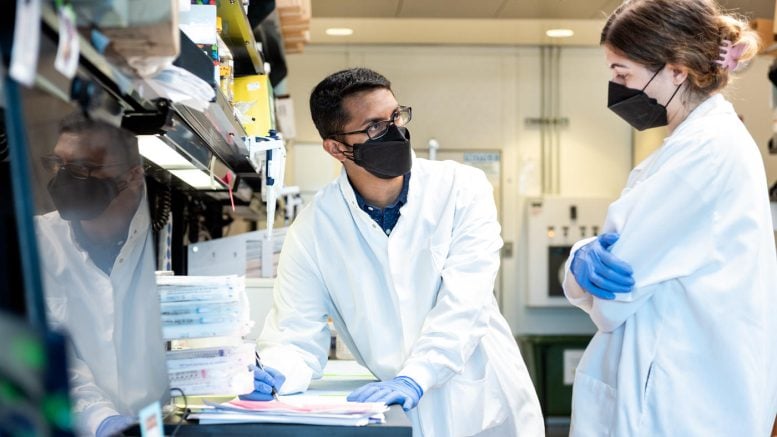
A team of researchers, including Abdullah Syed (left) and Alison Ciling (right), used virus-like particles to identify which parts of the SARS-CoV-2 virus are responsible for its increased infectivity and spread. Credit: Michael Short/Gladstone Institutes
Virus-Like Particles Accelerate Omicron Research
Epidemiological evidence has indicated that the Omicron variant of SARS-CoV-2, which was discovered for the first time in November 2021 in South Africa, spreads more rapidly than the virus’s original strain. It has also resulted in a greater number of breakthrough infections than other variations, in people previously infected with or fully vaccinated against COVID-19.
To research the SARS-CoV-2 virus, Ott and Doudna’s research teams created virus-like particles in the early months of 2021. These particles are made up of the viral particle’s structure’s membrane, envelope, nucleocapsid, and spike proteins. However, because virus-like particles are devoid of the virus’s genome, they cannot infect humans and are less dangerous to deal with than the live virus. Additionally, researchers can create new virus-like particles far more quickly than they can grow new variants of the live virus to analyze.
The researchers previously showed how the infectivity of the corresponding full, live virus was linked to the effectiveness of virus-like particle assembly. For example, based on cell culture experiments, if a virus-like particle carrying a certain mutation was more effective at producing viral particles, a copy of the live virus with the same mutation was also more infectious.
Recently, the team developed virus-like particles to capture the effect of different mutations in the emerging Omicron variant of SARS-CoV-2.
Omicron mutations in the spike protein, they found, made virus-like particles twice as infectious as those with the ancestral spike protein. And virus-like particles carrying Omicron’s mutations in the nucleocapsid protein were 30 times more infectious than the ancestral SARS-CoV-2.
“There has been a lot of focus on spike, but we’re seeing in our system that for both Delta and Omicron, the nucleocapsid is really more important in enhancing the spread of this virus,” says Ott. “I think if we want to generate better vaccines or look at blocking the transmission of COVID-19, we might want to think about targets other than the spike protein.”
When the team made virus-like particles carrying Omicron mutations in the membrane or envelope proteins, they found that the particles were no more infectious than the ancestral virus-like particles; in fact, they were only about half as infectious as some other variants.
“Omicron has a lot of mutations, and our findings tell us that some of these mutations are actually harmful to the virus,” says Abdullah Syed, Ph.D., first author of the study and a postdoctoral fellow in Doudna’s lab at Gladstone. “But it also means that it could be possible for Omicron to evolve to be even more infectious if those brakes are lifted.”
How Omicron Evades Antibodies
The researchers also tested the ability of antibodies to neutralize the SARS-CoV-2-like particles. They collaborated with the Innovation Team at Curative, which established a comprehensive serum biobank by administering over 2 million vaccinations across the US.
The team used serum of 38 people who had been vaccinated against COVID-19 or were unvaccinated but had recovered from the virus, as well as 8 people who had received a booster vaccine within the previous 3 weeks. Then, the researchers exposed the virus-like particles they had created to these serum samples to test their ability to neutralize the particles.
Sera from people vaccinated with the Pfizer/BioNTech or Moderna vaccine within the previous 4 to 6 weeks showed high levels of neutralization against virus-like particles of ancestral SARS-CoV-2, but levels of neutralization were 3 times lower for particles of the Delta variant, and about 15 times lower for Omicron virus-like particles. People vaccinated with the Johnson & Johnson vaccine or who recovered from COVID-19 showed low levels of neutralization against the ancestral virus-like particles, and little difference was apparent for the Delta and Omicron variants.
In addition, the researchers showed that within 2 to 3 weeks of receiving a third dose of Pfizer/BioNTech, all 8 boosted individuals in the study had detectable levels of antibodies capable of neutralizing all SARS-CoV-2 variants, including Omicron. However, levels of antibodies against Omicron were still 8 times lower than antibodies against the ancestral virus.
“Our findings support the idea that Omicron is much more capable of escaping our vaccine-induced immunity than previous strains of SARS-CoV-2,” says Ott. “It also underscores that booster shots from the mRNA vaccines seem to provide some degree of additional protection, even against Omicron.”
Additionally, when the team tested the monoclonal antibodies casirivimab and imdevimab (known commercially as REGEN-Cov), they found that the drugs showed high levels of neutralization against ancestral and Delta variants of SARS-CoV-2, but no detectable neutralization at all against the Omicron-like particles.
“We’re certainly not at a point where we fully understand this variant, but our data add to the growing evidence that it seems to be very good at infecting and very good at escaping antibodies,” says Syed.
Reference: “Omicron mutations enhance infectivity and reduce antibody neutralization of SARS-CoV-2 virus-like particles” by Abdullah M. Syed, Alison Ciling, Taha Y. Taha, Irene P. Chen, Mir M. Khalid, Bharath Sreekumar, Pei-Yi Chen, G. Renuka Kumar, Rahul Suryawanshi, Ines Silva, Bilal Milbes, Noah Kojima, Victoria Hess, Maria Shacreaw, Lauren Lopez, Matthew Brobeck, Fred Turner, Lee Spraggon, Takako Tabata, Melanie Ott and Jennifer A. Doudna, 19 July 2022, Proceedings of the National Academy of Sciences.
DOI: 10.1073/pnas.2200592119
The study was funded by the National Institutes of Health, the Howard Hughes Medical Institute, the Natural Sciences and Engineering Research Council of Canada, and the Roddenberry Foundation.

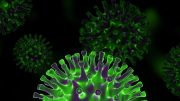

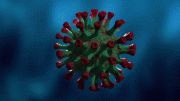
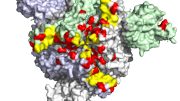


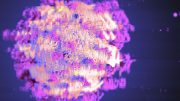
Be the first to comment on "Why Is Omicron More Infectious Than Other COVID-19 Variants?"